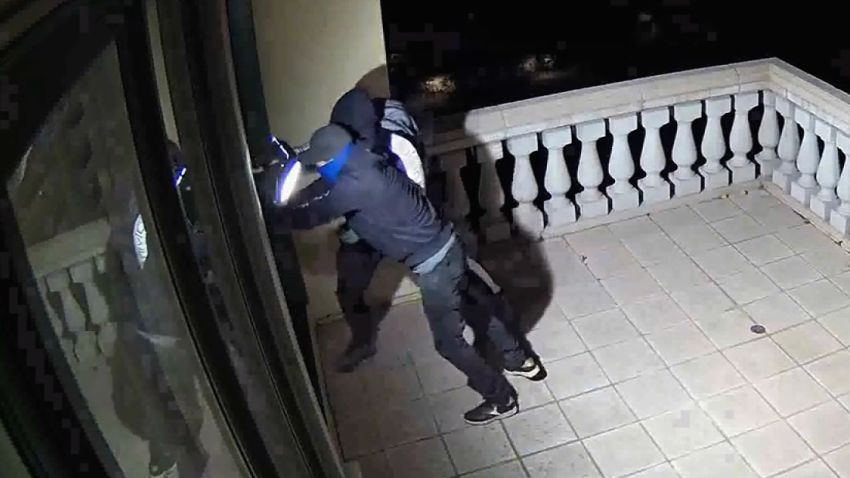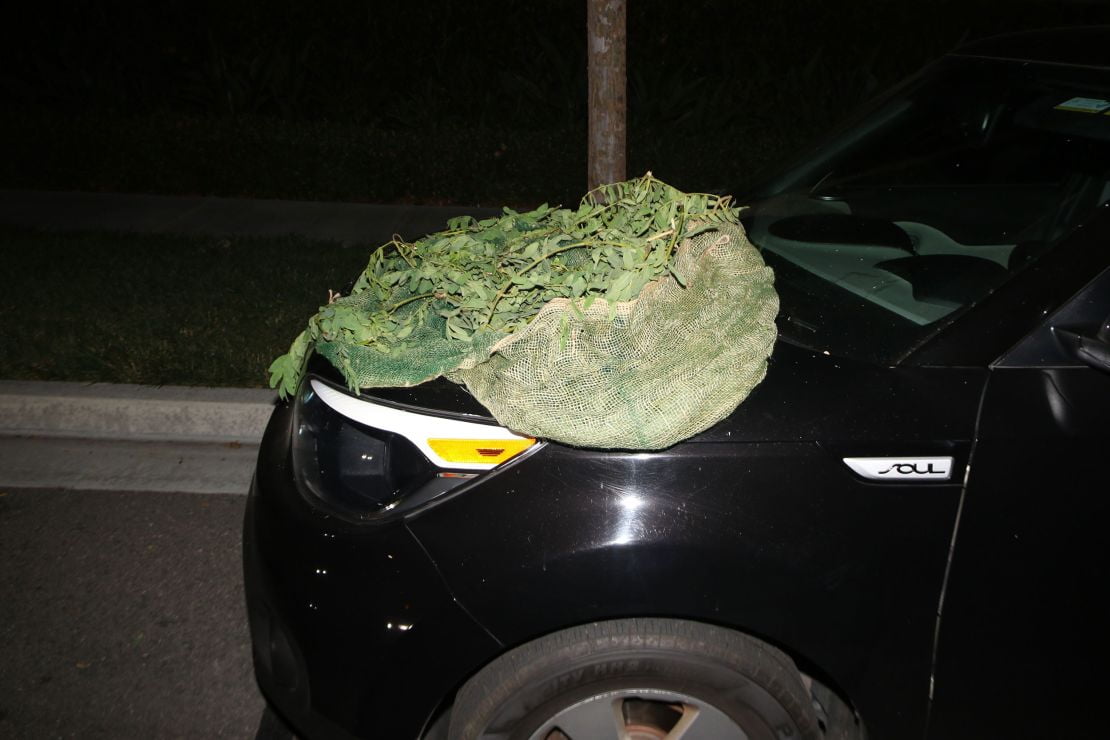
In Short
- The starr family’s experience highlights the impact of burglary tourists targeting luxury homes.
- Burglary rings often originate from nations eligible for visa waivers, such as south america.
- Sophisticated tactics, like wifi jammers and camouflaged suits, contribute to successful break-ins.
- Law enforcement struggles due to limitations in background checks for visa waiver travelers.
- The sundar family’s case echoes the broader concern over burglary tourism and its impact on home security nationwide.
TFD – Discover the alarming rise of burglary tourism and its implications for homeowners. This article sheds light on stolen jewelry, visa waiver programs, and the challenges faced by law enforcement in safeguarding communities against this growing threat.
With a hint of irony, Carol and Jeff Starr attended their daughter’s wedding last month without sporting their own wedding bands. Last spring, burglars entered into their Southern California home and took everything out of a safe that contained valuable jewelry.
“They’ve struck gold,” Carol Starr said to TFD.
The pair had placed family jewelry that belonged to Carol’s late mother in a 6-foot-tall safe along with their own rings.
Carol Starr remarked, “My mother loved beautiful things and she wanted to leave a legacy through jewelry.” “She purchased some exquisite antique jewelry that is fit for a museum.”
According to authorities in Orange County, California, a group of burglars allegedly watched the Starr family leave with visiting relatives while hiding in the hillside next to their house before acting.
According to Jeff Starr, who spoke to TFD, “They came over our fence, they broke through a window in the upper bedroom and came through that window.” “And then got to work right away on the safe.”
The family calculates that the entire loss was a startling $8 million.
Despite her gratitude that no one returned home during the break-in, Carol Starr stated, “You don’t feel safe in your own home anymore.” “When I consider what might have happened, I get so angry and emotional.”
The break-in, according to prosecutors, is a part of a bigger problem whereby so-called “burglary tourists” enter the country from nations that are eligible for visa waivers, which provide a stay of up to 90 days without the need for a standard tourist visa. When the suspects arrive – most often from South America, prosecutors say – they join sophisticated burglary rings that prey on luxury homes.
Certain suspects “lie in wait in these ghillie suits so they remain camouflaged,” according to Todd Spitzer, the district attorney for Orange County. They profit from the majority of people’s lack of motion detectors or window sensors on their second levels. To prevent the alarm firm from receiving notifications, they have WiFi jammers.

According to Spitzer, the proceeds from the sale of the pilfered products are frequently transferred back to the suspect’s nation of origin. He stated that most of the time, that would be Chile, which is currently the only nation in South America still eligible for the Department of Homeland Security’s waiver program, called the “Electronic System for Travel Authorization,” or ESTA.
The issue is not limited to California. Three Chilean nationals were taken into custody by Scottsdale, Arizona, police last month in relation to what they described as a “burglary series” in the city.
Police in Nassau County, New York; Raleigh, North Carolina; and Baltimore, Maryland have made arrests in cases of opulent home burglaries connected to Chilean nationals visiting the US without a visa within the past year.
The amount of crimes committed by “burglary tourists” is not officially counted, although it seems to be in the hundreds at the very least. Between 2019 and mid-2023, 175 house burglaries in Ventura County, California, were attributed to “transnational theft groups.
“Not every Chilean is traveling to the US for ninety days as part of this tourism scheme. In a March press conference, Scottsdale Police Chief Jeff Walther stated, “Not all of them are committing crimes.” Not that they are, mind you. However, what we’re seeing is that thousands, if not hundreds of thousands, of people entering the country under the visa waiver program are breaking into homes in numerous towns and areas around the nation. This is not an Arizonan problem, nor is it a Scottsdale or Valley one. This is a national issue.”
“We have to be willing to start asking some hard questions about the visa waiver program of our federal government,” Walther continued.
Looking to South America for solutions
In Dana Point, California, Rama and Balakrishna Sundar constructed their ideal home with a view of the ocean. They are attempting to restore their peace of mind following the claimed break-in by “burglary tourists” last year through a bedroom window.
Rama Sundar told TFD, “We want to move away from here and I don’t feel very secure at all.”
Balakrishna Sundar stated that the burglars also broke through an elevator door with a sledgehammer, possibly believing there was a safe behind it. The intruders took off without taking anything of value when the alarm company was called. A complaint filed in Orange County stated that the suspects were nationals of Chile, and that at least one of them was out on bond for a previous offense.
The district attorney, Spitzer, has been an outspoken opponent of Chile, saying that the country withholds background records on people who are granted visa waivers, making it more difficult to prosecute them in the US.
He declared, “We can’t tell the judge anything or represent anything about the background if we don’t know the criminal background of these individuals.” “This implies that the individual is set free without posting bail and never returns to face justice for the charges.”

TFD contacted the Chilean government for comment, but they never got back to us.
The waiver program, according to the Department of Homeland Security website, is essential for “expanding economic and cultural ties.” More than 40 nations are eligible for the initiative.
“Deeply concerned with some individuals who travel to the United States and engage in criminal activity,” the department said in a statement to TFD, but it also added, “Chilean officials have responded by improving operational cooperation with DHS to prevent travel… by known criminal actors.”
The agency also announced that it is accelerating the exchange of biometric data between the US and Chile, which will eventually allow US officials to view traveler criminal histories.
In an attempt to obtain access to the specifics of a bilateral security arrangement inked with Chile in July, Spitzer filed a lawsuit against the US State Department in March.
“Where is the pudding proof?” Spitzer stated. “Why aren’t these burglaries significantly declining as well?”
The Sundar family also questioned Washington’s level of urgency about this matter.
Balakrishna Sundar remarked, “I want a politician to go through this experience and he may feel exactly as I feel.”
“They ought to assist us,” his spouse continued. “It’s quite upsetting and annoying.”
Conclusion
The infiltration of burglary tourists poses a significant challenge to home security, affecting families like the Starrs and Sundars. As law enforcement grapples with sophisticated burglary rings, the need for enhanced security measures and international cooperation becomes paramount. This issue demands urgent attention and collaborative efforts to safeguard communities against this growing threat.
Connect with us for the Latest, Current, and Breaking News news updates and videos from thefoxdaily.com. The most recent news in the United States, around the world , in business, opinion, technology, politics, and sports, follow Thefoxdaily on X, Facebook, and Instagram .
